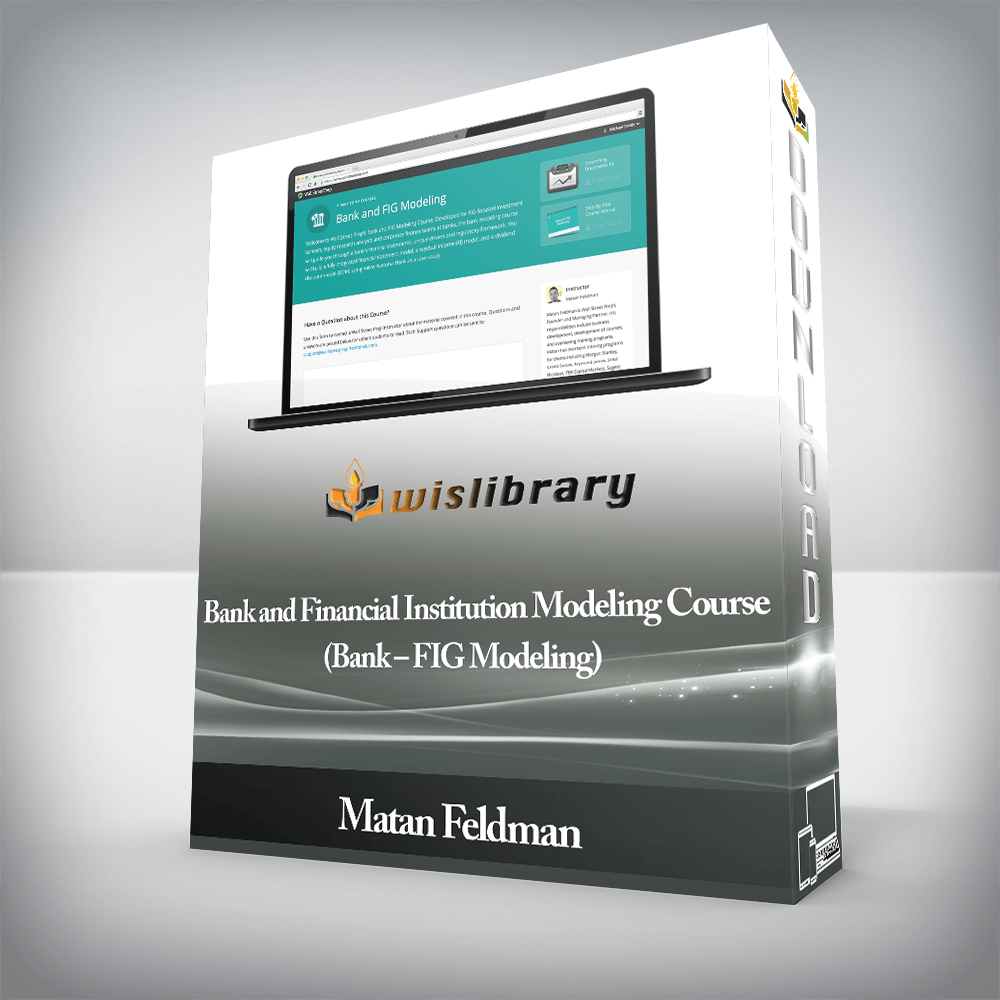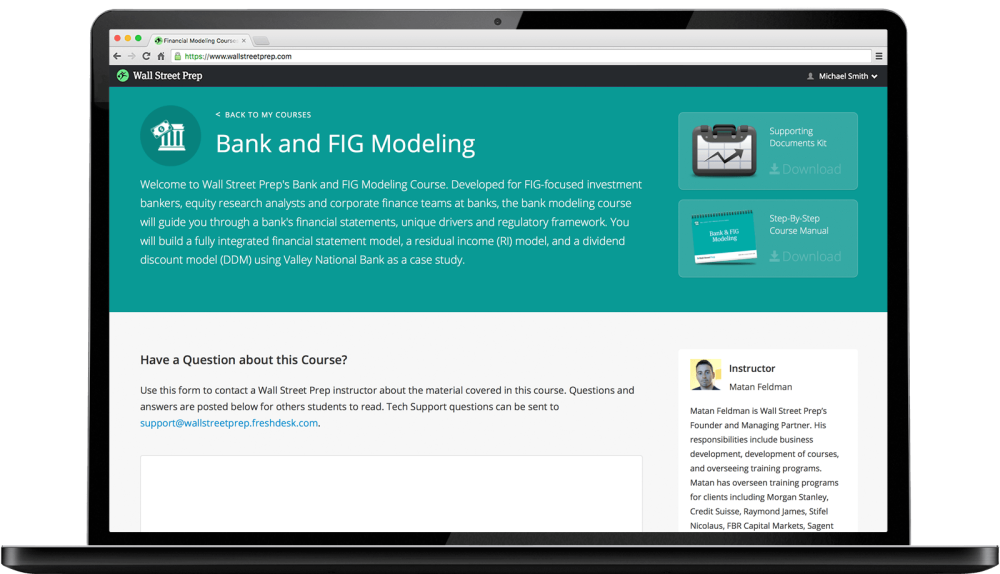

Developed for FIG-focused investment bankers, equity research analysts and corporate finance teams at banks, this course guides trainees through a bank’s financial statements, unique drivers, and regulatory framework. Please note, this bank & FIG modeling course is sold as a PDF E-Book and no video component.
At completion, trainees will have built a fully integrated financial statement model, RI model and DDM
The analysis of banks is different from that of most other types of industries. As a result, analysis requires adjustments and different approaches from traditional valuation methodologies. Wall Street Prep’s bank modeling course will guide you step-by-step through a bank’s financial statements, unique drivers and regulatory framework. You will build a fully integrated financial statement model, a residual income (RI) model, and a dividend discount model (DDM) using Valley National Bank as a case study.
The Bank Modeling Self Study Program bridges the gap between academics and the real world to equip industry professionals with the practical financial skill set they need on the job. The program utilizes a case study format, as students follow their tutorial guide alongside the Excel model templates, and are directed to the appropriate external documents (SEC filings, research reports, etc.) in order to build complex financial & valuation models the way they would on the job.
Upon enrollment, students gain 24-month free access to Wall Street Prep’s Online Support Center, where they receive answers to questions, free downloads, and important updates.

This course does not assume a prior background in Bank & FIG Modeling. However, those who enroll should have an introductory knowledge of accounting (e.g. interaction of balance sheet, cash flow, and income statement) and proficiency in Excel. Students with no prior background in Accounting should enroll in the Accounting Crash Course. Students with limited experience using Excel should enroll in the Excel Crash Course.
There are no reviews yet.
You must be <a href="https://wislibrary.net/my-account/">logged in</a> to post a review.